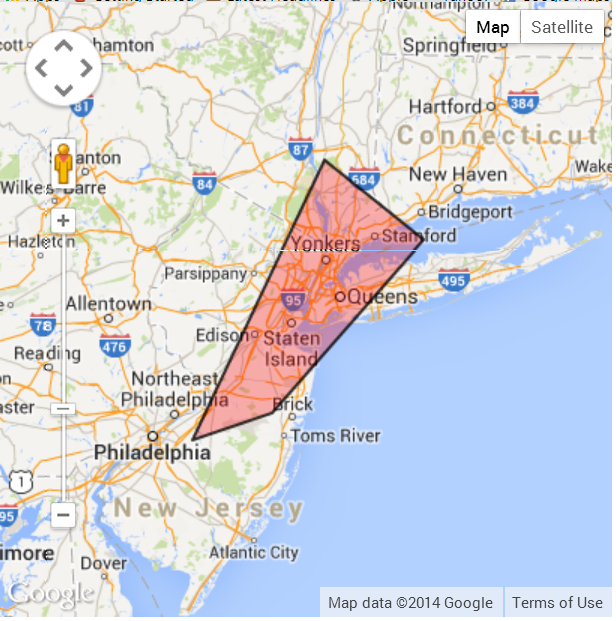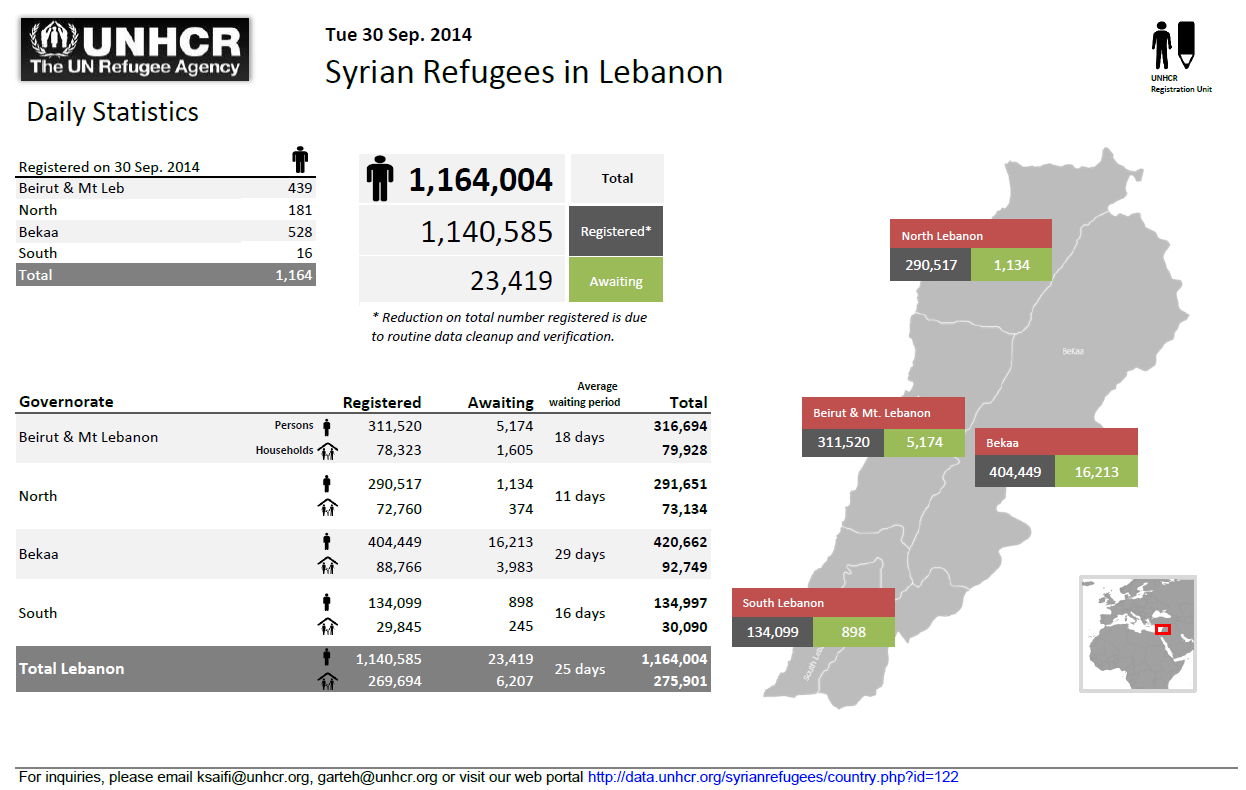
Size of Lebanon projected to the Northeastern U.S.
Response to Syrian Refugee Crisis
Over the years, WRF Lebanon has transformed the lives of many thousands of persons with disabilities, implementing a wide range of rehabilitation programs to meet expanding needs, including the needs of landmine survivors and victims of war. As the crisis in Syria unfolds, WRF Lebanon focuses on the urgent needs of refugees from Syria and their peers in Lebanese host communities.
Over 3 million refugees from Syria fled to neighboring countries, around half of them to Lebanon. WRF Lebanon is contributing to the international efforts to address critical needs through its Emergency Assistance Program for Persons with Disabilities among Refugees in Syria and in Lebanese Host Communities.
Throughout Lebanon, the program provided prosthetic and orthotic devices and rehabilitation services to persons with disabilities, particularly those with new war injuries, as well as prescription eyeglasses and hearing aids to children with visual and hearing impairments among refugees from Syria and within the Lebanese communities.
In addition, WRF Lebanon is leading the coordination efforts among local and international humanitarian agencies helping persons with disabilities among refugees from Syria and Lebanese host communities through steering the Disability and Older Age Working Group formed in June 2013.
In 2014, WRF Lebanon has provided 738 persons with disabilities with 853 rehabilitation devices (153 prosthetic and 225 orthotic devices, 185 hearing aids, and 290 prescription eyeglasses) through establishing partnerships with 14 regional Prosthetics/Orthotics, Optometry and Audiometry service delivery facilities.
- 622 beneficiaries were Syrian refugees, 35 Palestine refugees from Syria and 81 from Lebanese host communities
- 62% of all the beneficiaries were children below 18 years of age. 41% of the beneficiaries are women and girls, including 33% below 18 years old
- All project beneficiaries and their families received information, training and technical guidance on how to deal with their disabilities, how to take care of their provided assistive devices; and how to access available rehabilitation services
- 18 coordination meetings conducted to advocate for rights and needs of persons with disabilities among refugees through the “Disability and Older Age Working Group”
WRF History in Lebanon
WRF has had a continual presence in Lebanon for over 20 years—often the only international rehabilitation NGO to remain in the country throughout long periods of conflict.
WRF started its work in Lebanon by developing training and technical assistance activities for local rehabilitation centers in the early 1970s. After success and an ongoing need for WRF’s presence, WRF expanded its focus and established a national office in June 1987.
Since then, WRF has been a key organization-addressing issues of disability prevention, rehabilitation, and socio-economic integration of individuals with disabilities. WRF has been actively involved in humanitarian mine action since 1996.
Lebanon’s recent history is characterized by the near-continual presence of conflict and war. In 2000, it was estimated that during the 15-year civil war, 150,000 persons had been killed, 450,000 people had been displaced, while 350,000 remained classified as displaced. The current population of Lebanon is approximately 3.6 million and still faces a significant threat from landmines: of the 3,413 mined areas identified, 2,180 are yet not cleared.
- WRF Lebanon has supported more than 220 local agencies and provided direct services—from physical rehabilitation through socio-economic reintegration—for thousands of disadvantaged individuals. This is the result of five major programs and numerous pilot projects.
- In 1993, WRF Lebanon initiated a national prosthetics and orthotics program. Through this, WRF began discovering the depth and breadth of Lebanon’s landmine crisis and related socioeconomic problems.
- By 1996, the team began its work on a national campaign to focus on landmine-related issues and to address needs of victims of landmines and unexploded ordnance.
- In June 1998, WRF launched an innovative cross-disciplinary humanitarian mine action program, with special focus on South Lebanon. Funding came from the United States Agency for International Development (USAID) and the Leahy War Victims Fund. This program was the first of its kind in Lebanon, as well as the region.
- Through the support of USAID and the Leahy War Victims Fund, WRF expanded this effort to pioneer an innovative job creation and economic opportunities initiative for landmine survivors and war victims in the Administrative District of Jizzine in South Lebanon.
Small businesses and agri-business enterprises in Lebanon are flourishing as a result of WRF and the communities’ commitment to creating economic and social independence.
The Project Expanding Economic Opportunities for Landmines Survivors in the District of Jizzine, South Lebanon was launched in October 2001 with funding from the USAID and the Leahy War Victims Fund. This effort was a direct response to the limited economic opportunities available to residents of the Jizzine District in general and disadvantaged landmines survivors, in particular.
The early success of the pilot phase with landmine survivors, combined with the ongoing needs of the wider war-impacted community, led to the extension and expansion of the Project in October 2004 to also include other victims of war.
The Project supported five agricultural production and food processing programs:
- Poultry-raising for free-range egg production
- Poultry-raising for free-range chicken production
- Beekeeping for honey production and products
- Goat Raising for Milk Production
- Herb cultivation for production of edible herbs and products
(Phase 1 of program)
These programs were implemented by WRF Lebanon in partnership with the Development Cooperative in Jizzine (COOP), a legally registered cooperative formed by 196 registered members—all of whom were landmine survivors and war victims participating in the Jizzine Project. At the end of the project, WRF Executive Director gave a tour of the COOP to the Director of USAID, the Deputy Chief of Mission of the US Embassy, and the President of the Jizzine Union of Municipalities, among others.
To learn more about WRF Lebanon, visit: www.wrf.org.lb.

